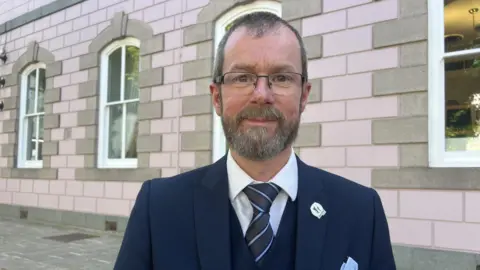Increase in compensation for work discrimination
 BBC
BBCThe maximum amount of compensation paid to people found to have faced discrimination at work has been increased.
States members voted to increase the amount from £10,000 to £30,000 on Tuesday.
Social Security Minister Deputy Lyndsay Feltham had proposed a maximum payment of £50,000 or the equivalent of 52 weeks of pay per claim but the assembly voted to accept Assistant Chief Minister Deputy Malcolm Ferey's cap of £30,000.
The assembly voted to approve the amendment with 23 votes for, 21 votes against and one abstention.

Ferey said he had proposed the £30,000 limit because it is the petty debts court that enforces pay outs and it can only enforce payments of up to £30,000.
He said: "That's a sum that aligns with the jurisdiction of the petty debts court and secondly that is still a substantial increase from when the amount was initially set."
If the assembly had approved the increase to £50,000 it could have put employers off hiring people with disabilities, he added.
'Enough of a disincentive'
Ferey said: "An employer needs to make reasonable adjustments to accommodate people with disabilities in the work place, which is the right thing to do.
"But when you are faced with the additional potential if you get it wrong of at least £50,000, or if there are multiple claims then even more, that could take a small business or charity out of the picture."
The social security minister said she had been following the recommendations of the Jersey employment forum and was disappointed the assembly had not backed plans for an increase to £50,000.
Feltham said: "We've got a number of very profitable businesses so I don't think £30,000 will be enough of a disincentive to those businesses to stop any kind of discrimination claims coming through their organisation."
Follow BBC Jersey on X and Facebook. Send your story ideas to [email protected].
